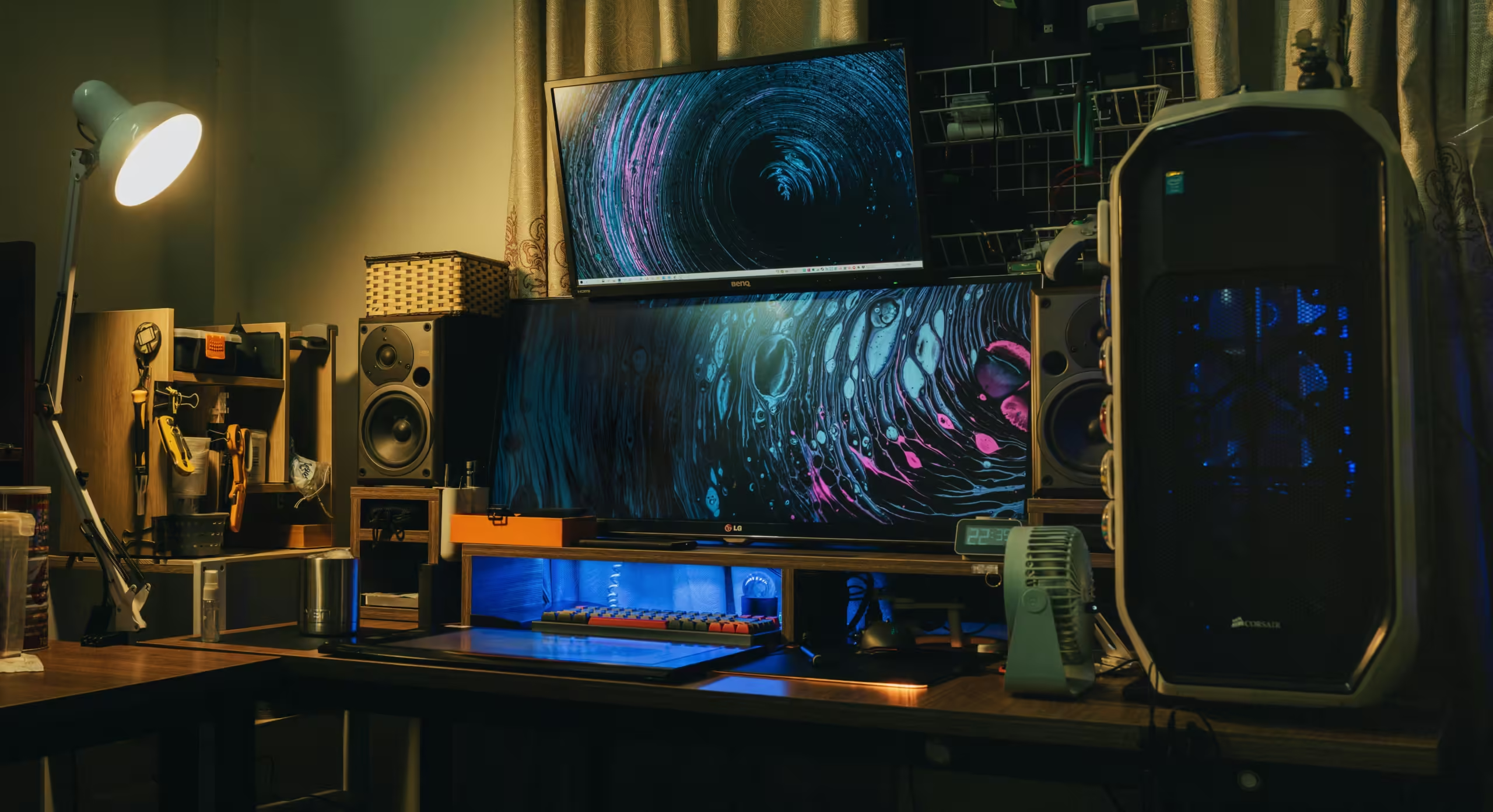Introduction
A slow, lagging PC can completely ruin your gaming experience. Whether you’re playing graphically intensive AAA games or competitive esports titles, performance matters. In this guide, we’ll show you how to quickly optimize your PC for gaming with simple tweaks that can boost your frame rates and reduce lag. These easy fixes will help you get the most out of your hardware and improve your overall gaming performance.
Step 1: Update Your Graphics Drivers
Outdated graphics drivers can cause issues like stuttering, crashes, and performance drops in games. To get the best gaming experience, always make sure your GPU drivers are up-to-date. Here’s how to update them:
- NVIDIA Users: Visit the NVIDIA website to download the latest driver updates for your GPU.
- AMD Users: Go to the AMD Drivers Support page and download the most recent drivers for your graphics card.
Regular updates improve game compatibility and unlock new performance features, ensuring your hardware works smoothly with new game releases. Optimize Your PC for Gaming
Step 2: Optimize Your In-Game Settings
Adjusting your game settings can provide a significant performance boost. Here’s how to find the right balance between visual quality and smooth gameplay:
- Resolution: Lowering your resolution can increase frame rates. Try reducing it if you’re facing performance issues.
- Graphics Quality: Set graphics to “Medium” or “Low” for smoother gameplay, especially if your system is a few years old.
- V-Sync: Turn off V-Sync to eliminate input lag, though it may cause screen tearing. Test your system to see which setting works best for you. Optimize Your PC for Gaming
For detailed guides on optimizing specific games, check out PC Gamer’s Game Settings Optimization.
Step 3: Enable Game Mode in Windows 10/11
Windows 10 and 11 come with a special feature called Game Mode that prioritizes system resources for gaming. To enable Game Mode:
- Open Settings and go to Gaming.
- Turn on Game Mode.
Game Mode helps ensure your PC is focused on gaming by limiting background tasks, giving you smoother performance during gameplay. Optimize Your PC for Gaming
For more on Game Mode, read the Microsoft Game Mode Support page.
Step 4: Free Up Space on Your Hard Drive
A cluttered hard drive can slow down your PC. Free up space by uninstalling unnecessary programs and deleting old files. You can also use a disk cleanup tool like CCleaner to help remove junk files. Additionally, if you have a Solid-State Drive (SSD), make sure your games are installed there to benefit from faster load times. Optimize Your PC for Gaming
Step 5: Adjust Your Power Settings
Set your PC’s power plan to High Performance for the best possible gaming experience. Follow these steps:
- Go to Control Panel > Power Options.
- Select the High Performance plan to prevent your PC from throttling its power to save energy.
This ensures your system is running at full potential, especially when you’re gaming. Optimize Your PC for Gaming
Step 6: Overclock Your CPU and GPU (For Advanced Users)
Overclocking your CPU and GPU can provide significant performance gains but comes with risks, such as overheating. If you’re comfortable with the process, here’s how to get started:
- MSI Afterburner: This is a popular tool for overclocking your GPU. Use it to tweak your graphics card’s performance.
- Intel XTU: For CPU overclocking, Intel’s Extreme Tuning Utility (XTU) can be used to adjust clock speeds and voltages.
For more on overclocking, check out NVIDIA Overclocking Guide and AMD Overclocking Tips. Optimize Your PC for Gaming
Step 7: Use Game Booster Software
Game booster software, such as Razer Cortex or Game Fire, can temporarily disable background processes to free up system resources for gaming. These tools help maximize your system’s performance during gameplay by shutting down unnecessary apps and services.
Conclusion: Optimize Your PC for Gaming
Optimizing your PC for gaming doesn’t require a lot of technical expertise. With these simple steps, you can unlock smoother, more responsive gaming without spending money on new hardware. Whether you’re an occasional gamer or a competitive player, these tips will help you get the most out of your system and enjoy lag-free gaming.
Call to Action
Ready for even more tips on improving your gaming experience? Check out our Ultimate Gaming Setup Guide to learn about the best gear and accessories to complete your setup!. Optimize Your PC for Gaming
